So you’re wondering what is the purpose of guidance in providing good parenting. And how you can master it, as well. Let me tell you how amazing that is because it shows you care about your kids!

What Is The Purpose Of Guidance In Good Parenting?
The purpose of guidance from parents is to provide conditions and opportunities for a child to develop into a mature and autonomous adult.
For you to get a complete picture of the purpose of child guidance, we’ll cover:
- child guidance terms and definitions,
- what child guidance means,
- what happens with guidance and discipline in infants and toddlers, considering this phase rises more doubts that the other ones,
- and how positive child guidance is related to positive parenting.
Stay with me until the end of this post, because I’ll mention a program you can start immediately, to take it a step further. If this sounds good to you, we can jump right to finding that purpose of child guidance.
So let’s do it!
Note: Although I am a Clinical Social Worker, engaging with this website does not establish a professional social worker-client relationship. The information provided here is for general purposes only and should not be considered professional advice. While we strive to ensure accuracy and reliability, this content is not a substitute for professional guidance. For specific concerns, issues, or situations, it is essential to consult a qualified professional and present your situation. Read the full Disclaimer here.
THE DEFINITION OF GUIDANCE
Guidance and boundaries is the parenting capacity dimension referred to as proper guidance and boundaries established. Widely known as parental guidance and also child guidance.
In the shortest, we can define Guidance and Boundaries as parents assisting children to regulate their emotions and behavior, so the child can evolve into an autonomous person and responsible adult.
So, a parent’s job here is to shape and model ”appropriate” behavior and human interaction, so a child can:
- Develop prosocial behavior.
- Internalize a sense of morality and conscience.
- As well as learn how to channel and manage their reactions, emotions, and behavior.

Now, this means, a child will become competent in quality, prosocial and positive interaction with other people. And it’ll develop into a more independent person, and have crystallized prosocial values.
As a result, children will have learned social skills. Which they will later use in many different social situations and interpersonal interactions.
And with more positive opportunities for children to learn and manage social skills, the level of mastered social skills gets higher.
This also means positive personal experiences and examples in their immediate social environment.
WHAT DOES GUIDANCE MEAN?
As we said, this is one of the parenting capacity dimensions. Parenting capacity is the parent’s capability to respond to the child’s developmental needs adequately, sufficiently.
They provide a base for a parent to respond to the child’s needs. But of course, sometimes that’s not enough because the parenting capacity can weaken for many different reasons.
You can read more about Parenting Capacity in my post What is Parenting Capacity and How to Find Balance as a Parent.
Some of the parenting capacity domains are basic care, providing safety, emotional warmth and responsiveness, but also ensuring we’re providing proper guidance and establishing boundaries.
When we do this means we’re teaching and training children to properly regulate their emotions and behavior. A parent does this by:
- Directing child’s behavior.
- Modeling appropriate behavior.
- Demonstrating appropriate behavior for the child and control of emotions and interactions with other people.
- Setting clear limitations to ensure producing an internal model of moral values, conscience, and prosocial behavior in children.
WHAT IS THE PURPOSE OF GUIDANCE?
The purpose of guidance from parents is to provide conditions and opportunities for a child to develop into a mature and autonomous adult.
Now, these adults should have formed their own set of values and attitudes as a base, from which they draw responses and behavior that is appropriate for a particular social situation they run into.
But when you as a parent set limitations for the child, you must pay attention if those limitations are preventing a child from gaining their own experiences in life.
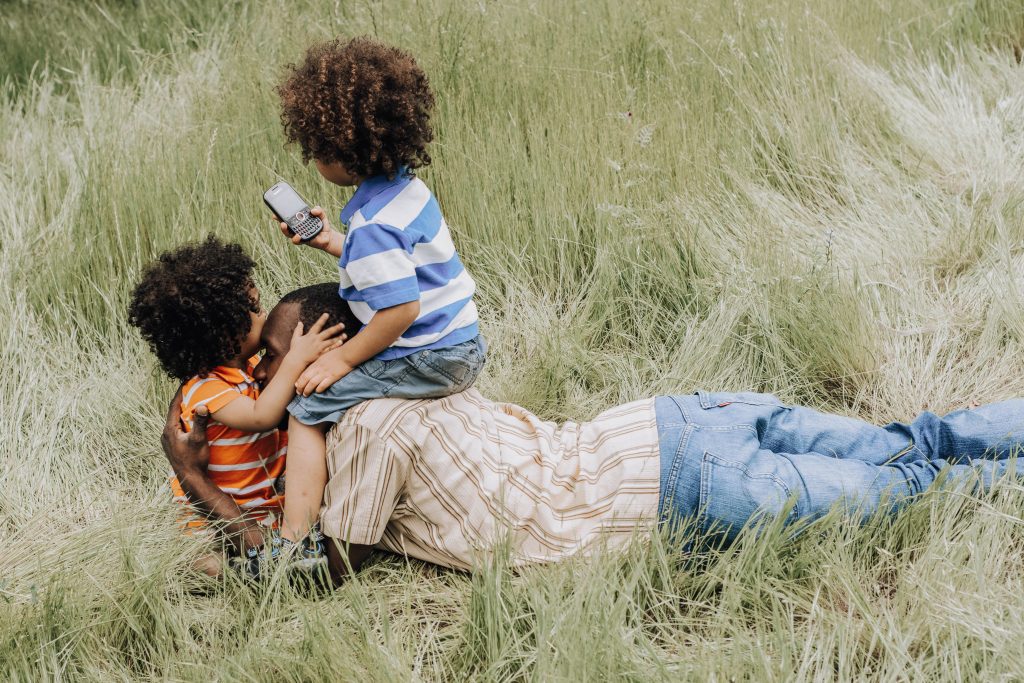
When we think about the purpose of child guidance we need to think in the next few terms that guidance provides for the child. Which is also beneficial for you as a parent. Let’s see:
- It helps the child to know where to go and what to do.
- It’s a support system for children to learn how to behave and how to channel emotions.
- It’s a part of children’s internalization of morality sense, moral values, and conscience.
- It serves to teach a child about appropriate social interaction with others.
- It helps and leads children to define and differentiate their personality and individuality from others.
- It supports a child in becoming more and more independent and developing into an autonomous person.
- It supports children with making a difference between their roles and those of their parents.
For more details concerning the position of guidance in child development, you can read my blog post What Is Guidance In Child Development?
WHAT TO DO IF THINGS GET COMPLICATED
And when it comes to this parenting capacity dimension, I must say that if you face issues and difficulties regarding the child’s behavior, it’s better to deal with it sooner than later.
In general, it’s easier to address any problem when it’s still new.
Considering that with passing the time (around 5 years) we don’t ”have” problems anymore. Now we’ve become organized around the problem.
Regardless of that, what’s important to remember, is that even behavior considered antisocial can change.
So a person can unlearn it and replace it with a more functional or prosocial.
However, depending on different factors, you might need to consider consulting a professional. This can be super beneficial because they can give you instructions, guidance, and assistance in achieving that. And it can be the fastest way to solve any issue.
It’s so amazing that these days that’s more welcomed than ever before! So why not use that advantage.
LIVE Q&A And Consultations with Jovana (WISHLIST)
Want a chance to get included in live weekly calls with me and get access to my expert insights, advice, recommendations, and guidance for your unique situation?
Consider signing up if you are aiming for:
- achieving tremendous child-parent relationships with the least effort possible as you learn what to focus your attention to
- attuning to healthy child development practices without losing yourself in the process and ignoring your human needs, rights, and aspirations for your life
- understanding and responding to your and your child’s needs better and carefully easing the tension between the two
- having your most pressing questions and concerns addressed and ongoing support
- getting skilled in honoring the child’s best interest in each life situation with the help of a few key rules and principles (child wellbeing, independence, autonomy, participation, and equality)
- experiencing a supportive and cooperative relationship with the other parent or a co-parent even in high-conflict circumstances
Address your doubts, concerns, and challenges, but also reflect on your situation through the experiences of others in this small and supportive community.
You’ll unlock monthly access for 60% off of my current hourly rate!
WHAT IS POSITIVE GUIDANCE FOR INFANTS AND TODDLERS?
You might think guidance is more important with older kids. Or that it starts at an older age because now they communicate verbally.
But actually, it’s only modified then, but equally important. If not even more important because that first life phase has a big impact on our lives later on.
You need to think about this from day one. Because like we said modeling is one of the elements of child guidance and it starts from day 1. So this means that you start modeling behavior that’s appropriate from the start.
And by good modeling, you can make sure you create a positive influence from the very beginning. You need to think this through.
For example, it happens that parents are asking one thing and modeling the same thing they want to exterminate in children’s behavior. Or that they simply aren’t giving a good example and they don’t realize it.
So this means you model prosocial behavior, personal interaction with others, and balanced channelling of emotions. The better you are at these, the more likely your child will be too.
Responding to your child’s needs starts from day 1, too. And a child ”knows’ this. This knowledge is reflected in the attachment (bond) between the child and the parent.
The attachment is secure when a parent is able to respond to the child’s needs. As opposed to an insecure and disorganized attachment where that’s not the case.
So a child knows what to and what not to expect from a parent even in their first few months of life. So it has begun to adapt to it in the first months of its life.
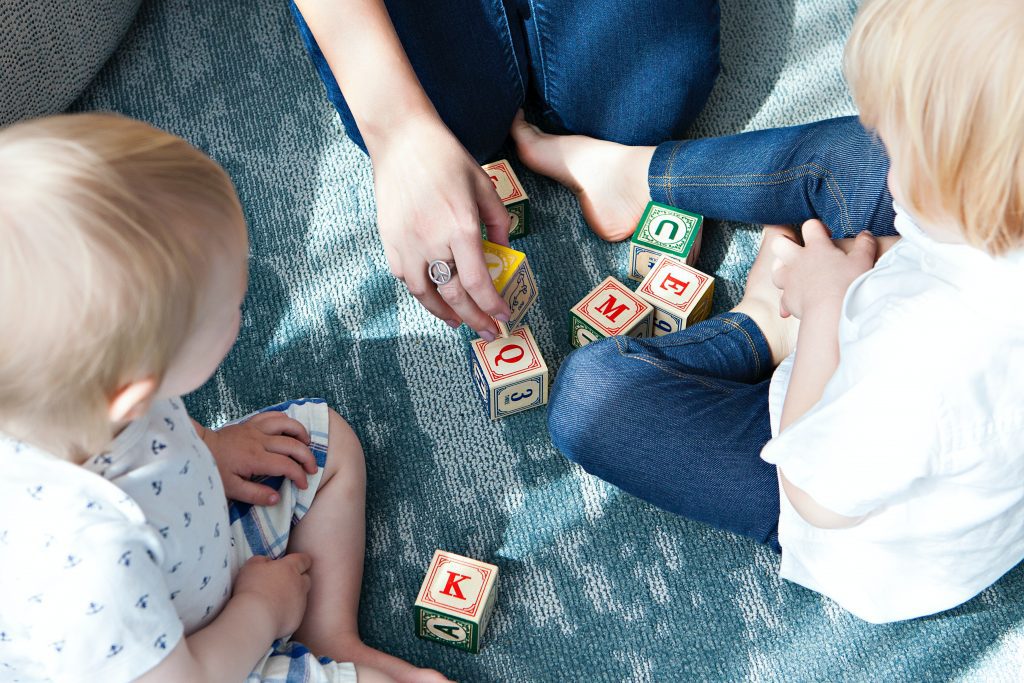
This means that we can see whether or not a parent responds to a child’s needs through the type of attachment. If a child knows you won’t respond the way it needs you to, then it’ll self-regulate. And this self-regulation can often become harmful for the child.
Guidance is also related to this as part of meeting your children’s developmental needs. Because it’s one of the fundamental elements in meeting those needs.
Children need guidance critically. And this is very important for their mental health.
We’ve also mentioned directing a child’s behavior. And you most definitely start with this also at the beginning. It’s just that you’re adapting it to the level of a child’s ability to comprehend.
Remember, they might not know how to talk yet, but they can understand. And they simply express themselves in different ways other than verbally.
And now, demonstrating appropriate behavior for the child and balanced control of emotions and interactions with other people. Well, first you should question how you treat the other parent. But also how they treat you too.
Plus, how you and the other parent are treating other people around you. As well as how you nurture other relationships.
Additionally, you need to think about the way you respond to the way your children are interacting with others. And how they channel and control emotions in these interactions.
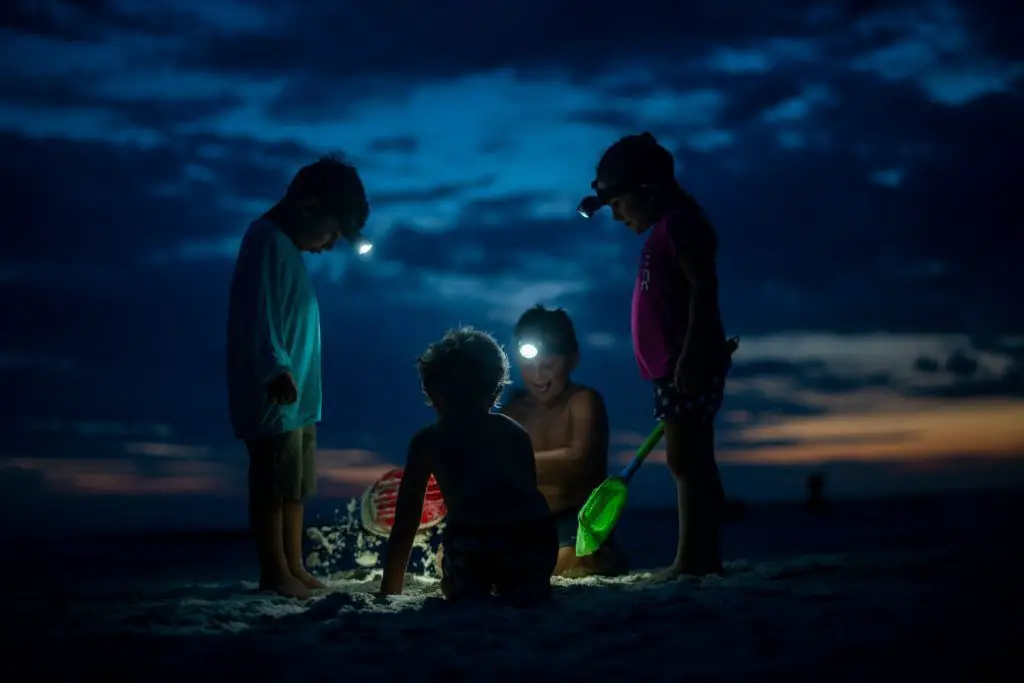
This will be challenging in these developmental phases because they’re learning to deal with all those emotions, so you need patience while they’re adapting. But at the same time, you shouldn’t ignore the behavior you see is not right and it’s repeating.
And of course, take proper action regarding that so you can help them. This is where you teach them about respecting personal boundaries.
And the last but not the least thing – setting clear limitations to ensure producing an internal model of moral values, conscience, and prosocial behavior in children.
If they’re at a young age that doesn’t mean this process hasn’t begun. Yes, we let them be kids but we teach them about boundaries and limits. Because at that age, you as a parent, are the first input for them about how the world works.
Now, how is child guidance related to positive parenting?
THE RELATION BETWEEN POSITIVE GUIDANCE AND POSITIVE PARENTING
Now let’s talk about different guidance terms and definitions.
Well, the positive guidance term is often associated with positive parenting. Now, positive parenting, obviously, isn’t the same as solid guidance and boundaries establishing.
But solid guidance and boundaries are an integral part of positive parenting. So let’s see what’s considered positive parenting and how it’s related to child guidance.
So positive parenting is parental behavior shaped by the child’s best interest. This is a term from the UN Convention on the Rights of the Child and the child’s rights. But with being aware and considerate of the parent’s position, necessities, and resources at the same time.
Firstly, a positive parent is a parental figure who acknowledges children as competent individuals entitled to their rights. And that their rights can’t be alienated or transferred to someone else.
Secondly, a positive parent leads a child towards achieving its full potential. While protecting it from harm and raising it in a safe environment. But without overprotecting and stopping a child to gain experiences, and making its own choices. With evolving autonomy in decision-making as they grow, of course.
Finally, a positive parent is a parent who’s setting the limits for the child, to help the child internalize the moral norms. And is shaping prosocial behavior in a child.
So this is where child guidance and positive parenting intersect.
If you found the information on the blog helpful & inspirational and you feel like giving back, you can do it by clicking the donate button after entering amount you’re comfortable with. I’ll use it to create and deliver more useful content and resources like this. Thanks for your precious contribution!
HOW CAN CHILDREN REACH THEIR FULL POTENTIAL?
And kids’ full potential is achieved when parents are:
- Present.
- Emotionally warm and responsive.
- Supportive.
- Set and clear out the rules and expectations.
- Put effort into understanding the child’s behavior; point out and praise good behavior and respond to misbehavior in a nonviolent way.
- Focused on reparation more than on retribution. But when using punishment they are fair and righteous and never cruel and harmful.
- Help children integrate their life experiences.
If you want to learn more about how you can support your kids in achieving their full potential, I have a solution for you. Check out my article on it, called Helping a Child Reach Full Potential – 7 positive parenting rules.
All of these 7 elements we just mentioned are explored in that one blog post.
Related:
Now, how can you tell if you are doing it right with child guidance? Or how you should do it right exactly?
QUESTIONS FOR OPENING THE TOPIC OF WHAT YOUR GUIDANCE LOOKS LIKE
The next several questions can help to put child guidance in perspective and direct you towards change. If you recognize you need it, of course.
Feel free to focus on the most important ones for you or your situation.
It’s recommended that you take notes and write down your most important conclusions. But also to write how you feel about them. These two combined can be super beneficial.
Let’s see:
- How do you steer and regulate a child’s behavior?
- How flexible and clear are the boundaries?
- How flexible are the rules and expectations and to what extent are they clarified?
- How are you teaching a child to deal with frustration?
- Are you modeling the behavior you expect to cultivate in a child?
- Does your child understand why it’s being punished and is learning from its mistakes?
- Are the punishments weighted against mistakes and appropriate for the child’s age?
- Are the disciplinary measures consistent and effective?
- Are you using corporal punishment? You need to stop if you do.
- Is the reward system positively structured?
- How are the conflicts or disagreements being resolved?
- How are you and the other parents sorting out different or opposite perspectives on guidance?
If you need full detailed explanations of what these questions mean, what they represent, and what’s truly important, I’ve got you covered. I recommend you check out my post Child Guidance: 12 Questions for Parent Self-evaluation.
Or if you would use it in a form of a ebook because it’s a really long informational post with lots of guidelines, you can get it from the shop, it’s designed with and additional workbook to help you put your insights into action.
If you have problems in the area if guidance it can give you clarity and shed light on where the issue lies.
It has worksheets and planners, and planners can be used on many different occasions, you could print it as a notebook or yourself, as well. The pdf is also fillable in case you prefer digital formats.
Here it is: PARENTAL GUIDANCE: SELF-EVALUATION GUIDE FOR PARENTS (E-BOOK+WORKBOOK).
That post will also help you understand what you should consider modifying or changing regarding child guidance. And how you can do exactly that.
I hope this was helpful! Let me know in the comments!
CHILD BEHAVIOR MANAGEMENT
Child behavior management refers to the strategies and techniques used by parents, caregivers, or educators to encourage socially acceptable behavior and discourage socially unacceptable behavior in children that involve understanding the particular child’s behavior, setting clear expectations for behavior, modeling socially acceptable behavior, establishing consistent responses or consequences for misbehavior, and using positive reinforcement to encourage desired behavior.
Considering you’re focused on positive child guidance, you’re probably interested in child behavior management. Especially in how skilled you are at it, am I right?
If that’s so, check out my post on this topic here – CHILD BEHAVIOR MANAGEMENT: 12 Signs You’re Crazy Good at it as a Parent.
I’m sure you’ll find it helpful. Let me know if it resonates with you!
Latest Posts:
- Gifts for Your Teenager That They’ll Actually Enjoy

- 6 Reasons Your Teenagers Seem Distant and Distracted

- Special Gifts to Let Someone Know You’re Thinking of Them (13)

- 100 Ways to Challenge Yourself (Without Stretching Yourself Too Thin)

- What To Do When Your Parent Struggles With Alcohol

- How To Navigate Moving to a New Home With Your Kids

FINAL THOUGHTS ON THE PURPOSE OF CHILD GUIDANCE
We’ve gone through the basics about what’s the point of child guidance, and that’s really great!
We explored what child guidance means and why is it important for you and your children. Then we spoke of what is the purpose of child guidance. As well as what happens with child guidance with infants and toddlers, which causes doubts. And in the end, we explained how child guidance is related to positive parenting.
I hope these covered everything you needed to know in order to understand the parental dimension called guidance and boundaries better. Finally, we uncovered crucial questions you need to ask so you can put your situation in perspective.
Remember that there’s always space for improvement and it’s never too late to turn things around. With this in mind, continue reading: 12 Signs You’re Crazy Good At Child Behavior Management.

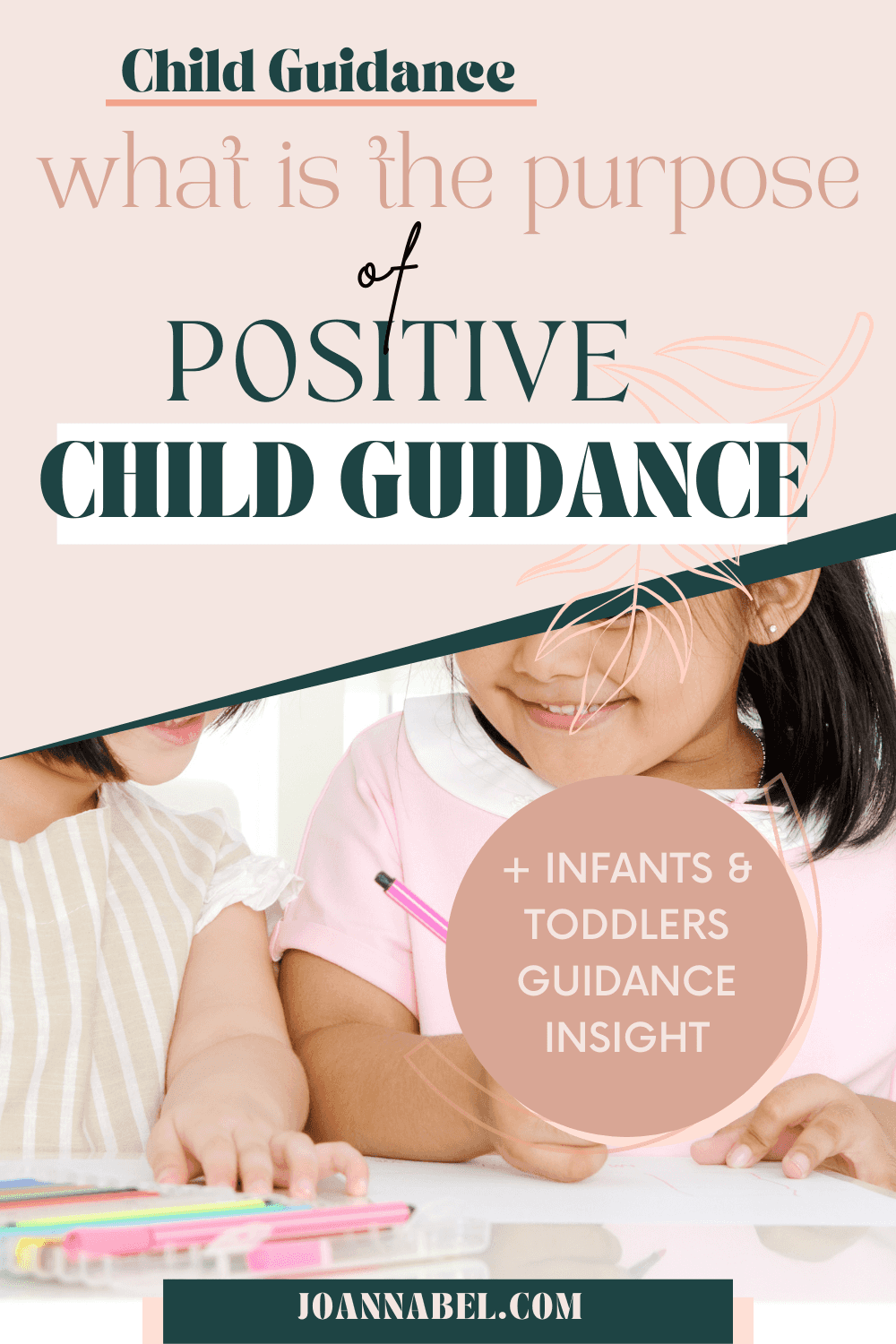
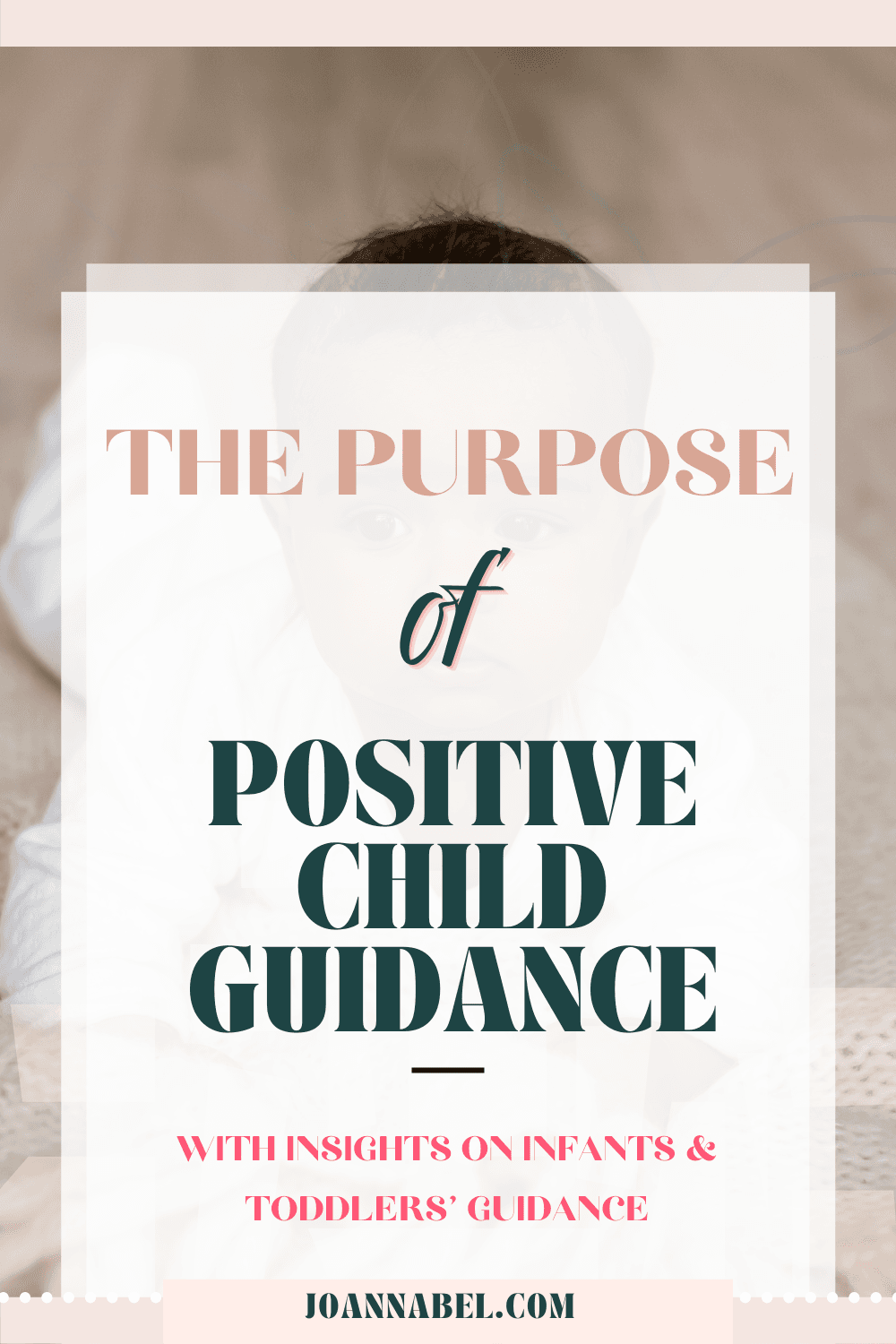
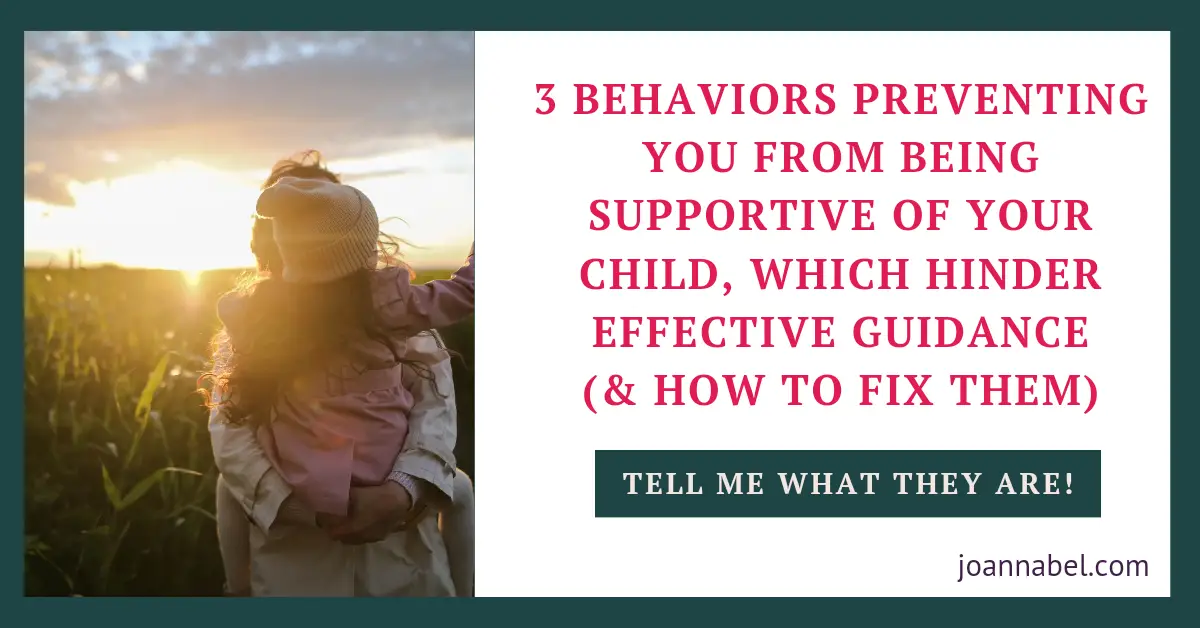

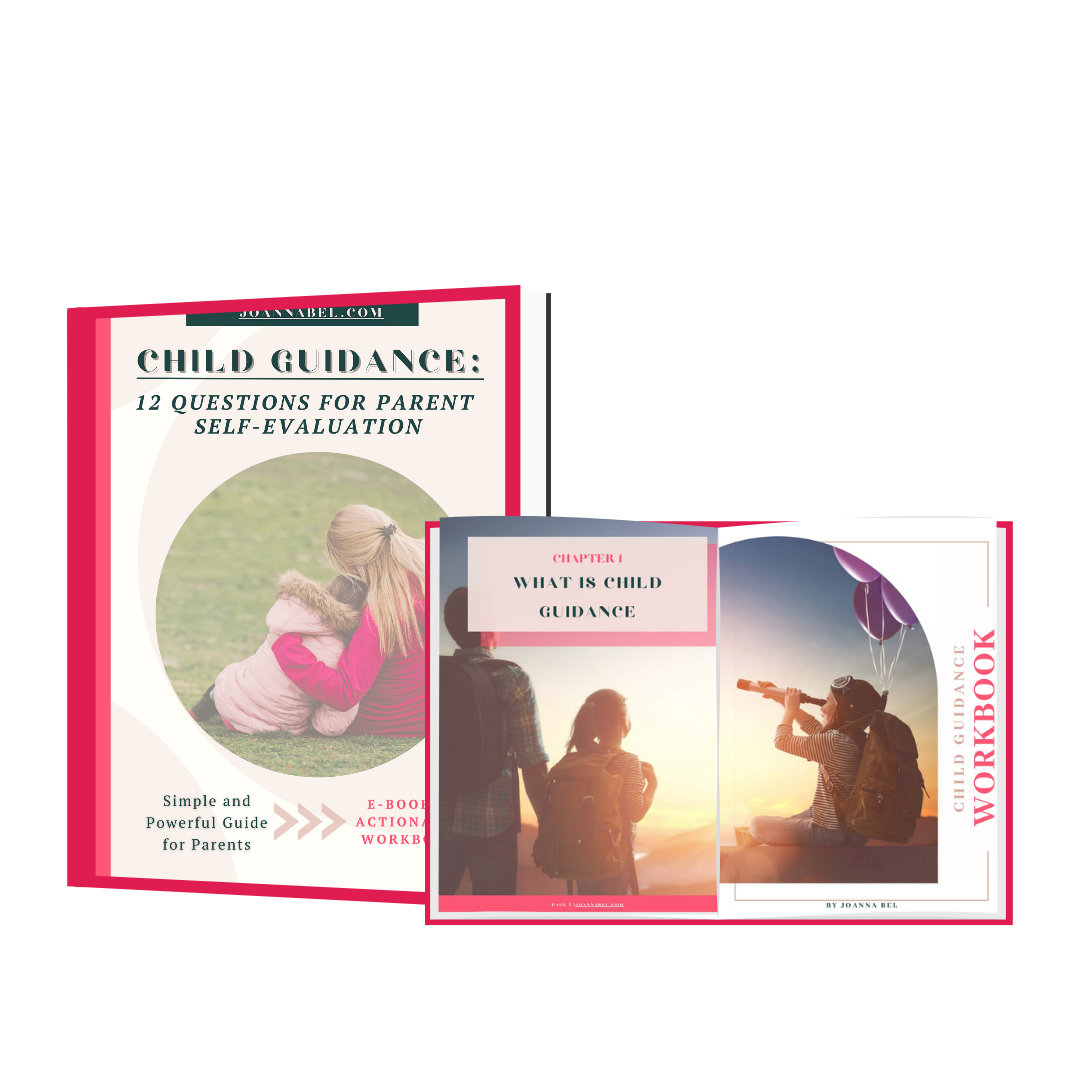






When a child has complete parental support and encouragement, they will be able to reach and exceed their own goals and expectations. Check my blog Powerful Ways to Help Children Reach Their Full Potential
Cheers,
Caroleann
Hi, Caroleann,
Thanks for your comment. That’s true!
And I love the topic that you’ve chosen for your blog post.
Have a great week!
Joanna